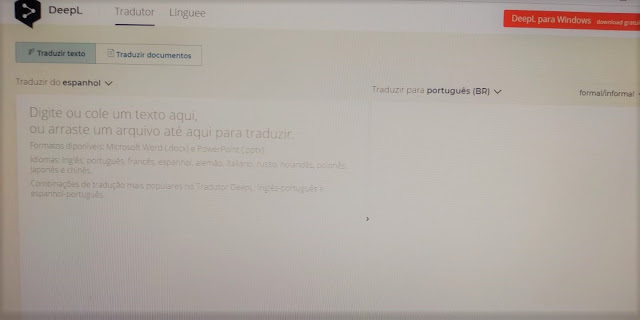DRAFT BILL PROPOSITION
Establishes principles, guarantees,
rights and obligations related to
the use of the Internet in Brazil.
THE NATIONAL CONGRESS decrees:
CHAPTER I
PRELIMINAR PROVISIONS
Article 1. This law establishes principles, guarantees, rights and obligations concerning
the use of the Internet in Brazil, and provides guidelines about this subject for the
jurisdictions of the Federal Union, States, Cities and the Federal District of Brasilia.
Article 2. Internet regulation in Brazil shall be grounded on:
- I – the recognition of the international nature of the Internet
- II – human rights and the exercise of citizenship in the digital environment
- III – the values of plurality and diversity
- IV – openness and collaboration
- V – free enterprise, free competition, and consumer protection
- I – safeguarding freedom of speech, communication, and manifestation of thought, in
the terms of the Constitution; - II – the protection of privacy;
- III – the protection of personal data, in accordance to the law;
- IV – the preservation and safeguarding of net neutrality, in compliance with further
regulation; - V – preservation of the stability, security and functionality of the network, by means of
technical practices compatible with international standards, as well as the incentive for
the use of best practices; - VI – liability of agents in correspondence to their activities, in accordance to the law;
and - VII – the preservation of the participatory nature of the Internet.
Sole Paragraph. The principles defined by this law do not exclude others set forth by the national legal system related to the matter, or by the international treaties signed by
the Federative Republic of Brazil.
Article 4. Internet regulation in Brazil shall have the following objectives:
- I – to promote of the right of accessing the Internet to all citizens;
- II – to promote access to information, knowledge and participation in cultural
activities and public affairs; - III – to promote innovation and encourage the dissemination of new technologies and
models of use and access; and - IV – to promote compliance with the open technological standards that allow
communication, accessibility and interoperability between applications and databases
- I – Internet: the system constituted by logical protocols, globally scaled for public and
unrestricted use, allowing the communication of data between terminals through
different networks; - II – terminal: a computer or any device that connects to the Internet;
- III – autonomous system administrator: the individual or the legal entity that
administrates Internet Protocols address blocks – specific IPs and their autonomous
system routing, duly registered in the Regional Internet Registry responsible for the
registries and distributions of IP addresses geographically related to the Country; - IV – IP address: the code assigned to a network terminal with the objective of
allowing its identification, defined according to international standards; - V – Internet connection: the authorization for a terminal to send and receive data
packages over the Internet, through the attribution and authentication of an IP address; - VI – connection logs: the information referring to the date and the time of the
beginning and end of an Internet connection, its duration and the IP address used by
the terminal for sending and receiving data packages; - VII – Internet applications: the group of functionalities that can be accessed by a
terminal connected to the Internet; and - VIII – Internet application access logs: the information regarding the date and time of
use, from a determined IP address, of a specific Internet.
objectives and directives established herein, but also the nature of the Internet, its
particular uses and customs, and its role in the promotion of human, economic,
social, and cultural development
CHAPTER II
ON THE RIGHTS AND GUARANTEES OF USERS
following rights are secured to its users:
- I – the non-violation and secrecy of communications on the Internet, except under
judicial order, in the hypotheses and form established by law, for criminal
investigations or the gathering of evidence for criminal procedures; - II – the non suspension of Internet connections, except for debts directly related to
their use; - III – the maintenance of the contracted quality of Internet connections, with
- observance of article 9;
- IV – clarity and thoroughness of information in contracts for Internet services, with
explicit mention of the applicable regimes for data protection, connection logs and
Internet application access logs, as well as to network management practices that can
affect the quality of the offered services; and - V – the non-disclosure, to third parties, of connection logs and Internet application
access logs, except if the user’s consent is obtained, or in the circumstances determined
by law
communications is a condition for the full exercise of the right to Internet access.
CHAPTER III
ON THE PROVISION OF INTERNET CONNECTION AND APPLICATIONS
SECTION I
On data traffic
the obligation of granting equal treatment to every data package, with no distinction by
content, origin and destination, service, terminal or application; any traffic
discrimination or degradation that does not arise out of the technical requirements
necessary to the adequate provision of services is prohibited, in accordance to further
regulation.
monitor, filter, analyze or supervise the content of data packages, except in the
circumstances allowed by the law.
SECTION II
On data records
access logs regulated by this law must preserve intimacy, private life, the reputation
and image of the parties directly or indirectly involved.
- §1º The Internet service provider responsible for the storage of logs will only be
constrained to disclose the information that allows the identification of the user under a
judicial order, in the terms set by Section IV of this Chapter. - §2º Procedures for security and secrecy must be clearly informed by the Internet
service provider responsible for the connection services, and must comply with
standards defined in further regulation. - §3º The obligation of secrecy established by article 10 subjects violators to the civil,
criminal, and administrative sanctions established by the law.
Subsection I
On the storage of connection logs
corresponding autonomous system has the obligation to maintain the connection logs confidentially, in a secured and controlled environment, for a period of one year, in the
terms of further regulation.
- §1º The responsibility for the storage of connection registries must not be transferred to
third parties. - §2º The police and administrative authorities may require, ad cautelam, the storage of
connection logs for a longer period than the one established in this law. - §3º In the hypothesis of §2º, the requesting authority will have the period of sixty days,
counted from the requirement, to request for judicial order to access the logs mentioned
in article 11. - §4º The Internet service provider responsible for the storage of the logs must keep
secrecy of §2º requests, which will lose their efficacy in case the judicial order is not
granted, or if their access was not petitioned within the period of time established by
§3º.
Subsection II
On the storage of Internet application access logs
store Internet application access logs.
user access logs, as long as article 7 is respected.
- §1º The decision not to store Internet application access logs does not ensue liability for
harm arising from the use of these services by third parties. - §2º A judicial order can determine, during a given period, the storage of Internet
application access logs, as long they relate to specific facts within a determined time
frame; the disclosure of the these logs shall follow the conditions set by Section IV of
this Chapter. - §3º In observance of §2º, police or administrative authorities may require, ad cautelam,
the storage of Internet application access logs, following the procedure and terms of §3º
and §4º of Article 11.
Section III
On the liability for damage caused by content generated by third parties
from content generated by third parties.
be responsible for the damages caused by content generated by third parties if, after
receiving a specific judicial order, they do not take action to, in the context of their
services and under the established time frame, make unavailable the infringing content.
the infringing content, allowing for the correct localization of the material, under
penalty of losing validity.
SECTION V
On the judicial request for logs
criminal proceedings, of either accidental or autonomous nature, request a judge to order
the party responsible for storing Internet service access logs, or connection logs, to
disclose these logs.
contain, under penalty of not being admissible:
- I –solid evidence of the occurrence of an illegal act;
- II – a motivated justification for the utility of accessing the requested logs, for the
purposes of investigation or the gathering of evidence; - III – the period that the logs refer to.
secrecy of the information received, and the preservation of the intimacy, private life,
honor and image of Internet users. Judges are capable, for that purpose, to constitute the
information as secret, including with respect to requests for the storage of logs.
CHAPTER IV
ON THE ROLE OF PUBLIC AUTHORITIES
guided by the following directives in the development of the Internet in Brazil:
- I – the establishment of transparent, collaborative, and democratic mechanisms of
governance, with the participation of the various sectors of society; - II – the promotion of interoperable technology for e-government services in the
different levels of the Federation, in order to allow the exchange of information and
streamlining of procedures; - III – the promotion of interoperability between different systems and terminals,
especially among different levels of the Federation and several sectors of society; - IV – the preferential adoption of open and free technologies, standards and formats;
- V – the disclosure and dissemination of public data and information in an open and
structured manner; - VI – the optimization of network infrastructure, the promotion of technical quality,
innovation, and the dissemination of Internet applications, without impairing the open,
neutral and participatory nature of the Internet; - VII – the development of initiatives and education programs concerning the use of the
Internet; - VIII – the promotion of culture and citizenship; and
- IX – the provision of public services for citizens in integrated, efficient and simplified
fashion, through multiple communication channels.
- I – the compatibility of e-government services with the various terminals, operating
systems and applications used to access them; - II – accessibility for all interested parties, regardless of their physical, motor, cognitive,
cultural, and social skills, provided that confidentiality issues and legal and
administrative regulations are respected; - III – compatibility with both human reading and automated processing of information;
- IV – ease of use of electronic government services; and
- V – the strengthening of social participation in public policy.
education, at all levels of teaching, includes capacity building, integrated to other
educational practices, for the safe, conscious and responsible use of the Internet as a tool
for the exercise of citizenship, the promotion of culture, and technological development.
social tool must:
- I – promote the digital inclusion;
- II – seek to reduce inequality in the access to information and communication
technologies and their use, especially between different regions of the Country; and - III – foster the production and circulation of national content.
objectives, strategies, plans and schedules regarding the use and development of the
Internet in the country
CHAPTER V
FINAL PROVISIONS
exercised in court, individually and collectively, in the terms of the law.
of 2011








